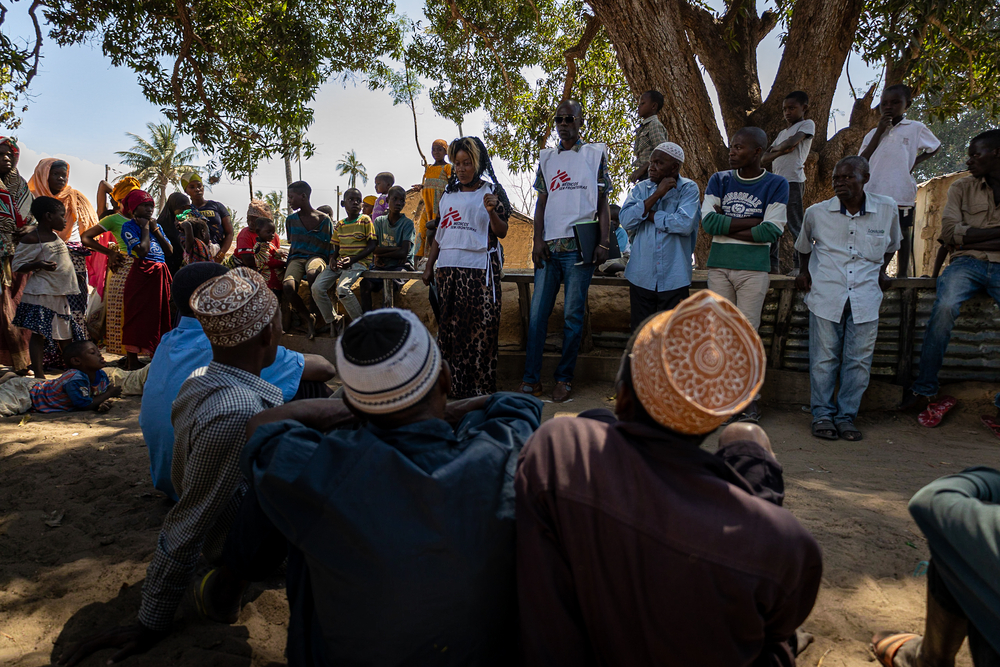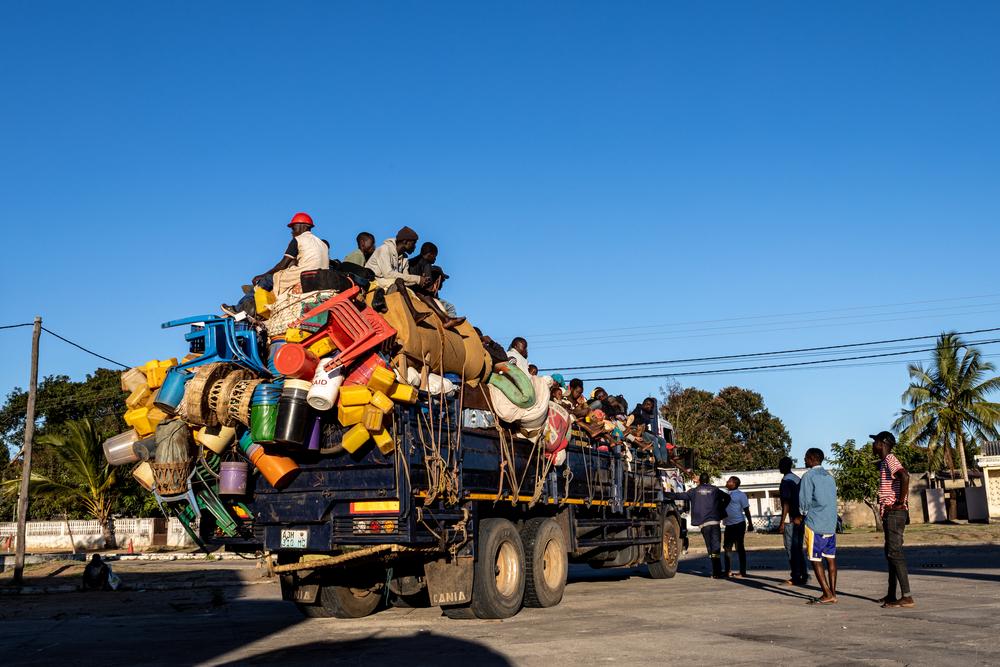As tens of thousands of people have returned to the town of Mocímboa da Praia over the past months, Médecins Sans Frontières/Doctors Without Borders (MSF) has established a medical project to assist vulnerable groups in the northern Mozambican district, which has been severely impacted by conflict in the province of Cabo Delgado.
Currently, in collaboration with the Ministry of Health, MSF teams support a semi-permanent 16-bed health structure for general consultations in the city centre and run mobile clinics in the most populated neighbourhoods, as well as some peripheral areas of the district, such as in Quelimane and Diaca administrative areas.
Prior to the start of the conflict in Cabo Delgado, Mocímboa da Praia was an important coastal town, a vibrant place with around 120,000 inhabitants in the whole district, mostly dedicated to both artisanal and industrial fishing in the urban and coastal areas, and subsistence agriculture in the rural areas of the interior.
People return to conflict-hit town
The first attacks of the conflict took place in Mocímboa da Praia in 2017 and subsequently, severe violence in the city affected local health centres and the hospital, which were severely damaged.
In 2020, the town was taken over by members of a non-state armed group, but in August 2021, Mozambican and Rwandese armed forces retook control. Since last September, people have steadily returned to the city and other nearby villages, many after having been displaced for years.
According to the local authorities, Mocímboa da Praia district now has around 72,000 inhabitants and many more are expected to return. Some of the current returnees are in transit, waiting to be able to resettle into surrounding villages.
Medical support and distributions of relief items

MSF health promoters talk to people in the Pandique neighbourhood of Mocímboa da Praia, a town in northern Mozambique. [© Mariana Abdalla/MSF]
“The number of returnees in Mocímboa da Praia is growing fast, but the services offered to the people, like shelter, health, food or water and sanitation, are still insufficient to meet their growing needs,” says Helena Cardellach, MSF’s emergency coordinator in Cabo Delgado.
Between September and early December, our teams carried out 5,155 medical consultations here, focusing on children under five and pregnant women. In addition, we have referred 190 patients to the health centre in town through our network of health promoters and sent at least 40 patients in need of specialised care to the Mueda Rural Hospital, about 100 kilometres west of Mocímboa da Praia.
Our teams are also distributing essential relief items, such as hygiene kits, and are doing an assessment of the water sources in the city in order to repair existing boreholes and construct new ones wherever this may be necessary.
We had previously run a medical project for some months in Mocímboa da Praia but in March 2020 were forced to evacuate our staff as the area was being attacked. In April this year, a team briefly visited the town, which at the time was mostly uninhabited, to run some medical activities. Since September, we have re-established a permanent presence as people have started to return.
While people are returning to places like Mocímboa da Praia over the last months, violence is forcing others to flee from their homes in different points of Cabo Delgado. There are currently nearly one million displaced people due to the conflict in northern Mozambique.
